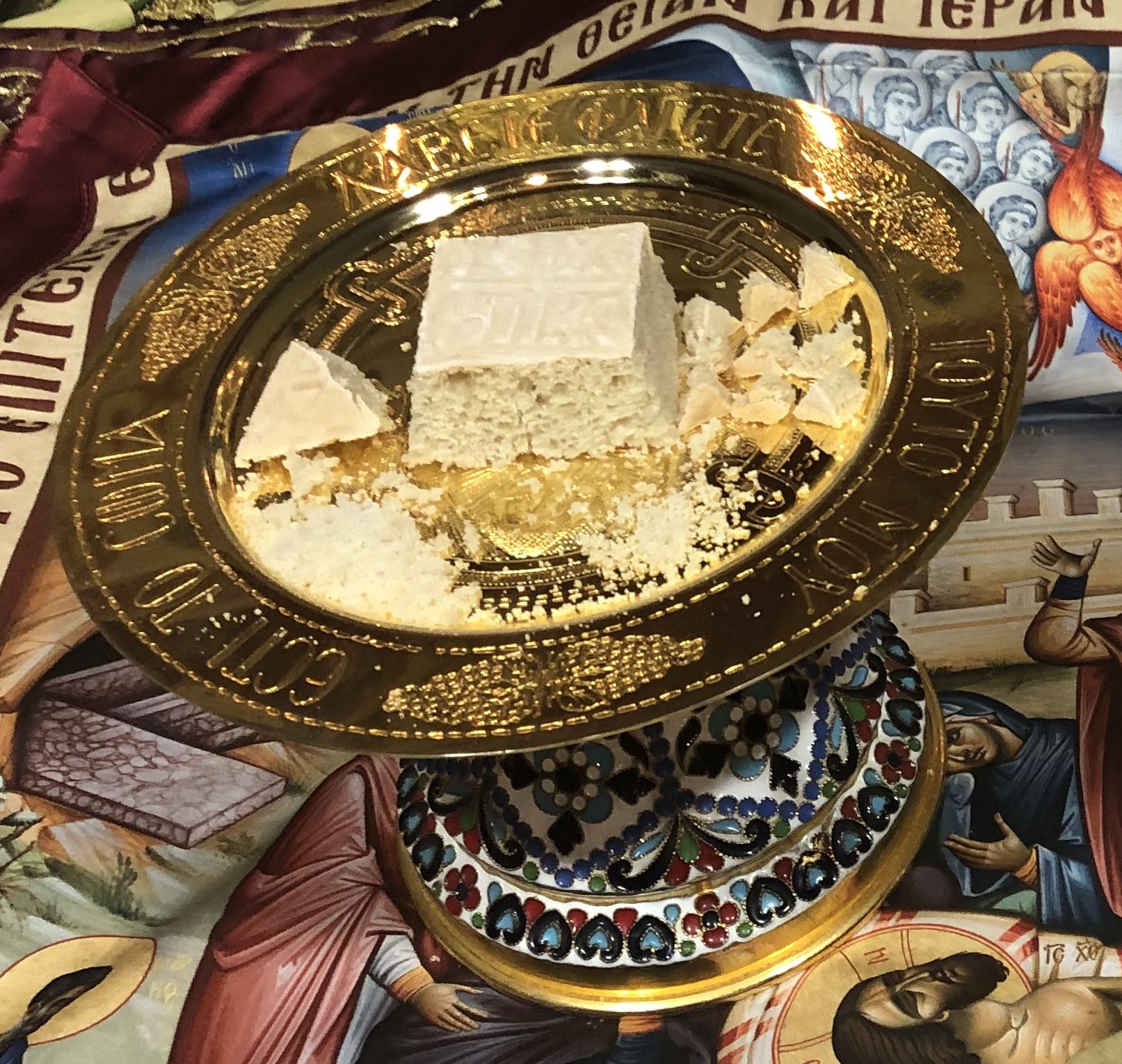Listen to advice and accept instruction, that you may gain wisdom for the future.
Proverbs 19:20
It was only in recent centuries that people were afforded the opportunity to read. Before the invention of the printing press, there were very few books and manuscripts and only a few people could read them. In composing the great anthology of hymns in our church, hymnographers were intentional in writing hymns that not only praised God and offered supplication to Him. The vast majority of them are actually hymns that teach. We learn through repetition and hearing hymns over and over again was a way for Christians to learn and understand the faith.
Saint John of Damascus (675-749) composed most of the funeral service, including 13 hymns called “Idiomela” which are sung at each funeral and which give us not only an opportunity to grieve but also to reflect and to learn. These hymns read as a sermon on the subject of death, why it happens and why the sacrifice of Christ and His Resurrection are important. Here are a few quotes from these hymns:
Which of life’s pleasures remains free of sorrow? Which earthly glory is permanent? All this is fainter than a shadow, all more illusory than a dream. In a single moment, death succeeds them all. O Christ, grant rest to those whom You have taken, in the light of your face and in the sweetness of Your handsomeness, O benevolent Lord. (Idiomelon of the first mode, From the Digital Chant Stand of the Greek Orthodox Archdiocese, https://dcs.goarch.org, from Sacraments and Blessings, Funeral, PDF text in English, p. 3)
When I chant this hymn, the initial two questions are very thought-provoking. None of life’s pleasures remain free of sorrow. That’s true. Even the best day has an ending. Thus, death is not unlike sorrows we’ve experienced in life, except for that it is permanent. No earthly glory is permanent. People graduate from schools, become too old to play competitive sports, and retire from jobs, three things, among many, that bring “glory” in life. Of course, we know that in a single moment, death can end life and any earthly glory that came along with it. Which is a sober reminder not to put all of our focus on earthly glory and none on the Lord and His eternal glory. Our visions of long life, wealth and security are just illusions, because death can come literally at any moment and all of those things will end.
I remember how the Prophet once said: “I am but dust and ashes”; and then I looked into the graves and saw the naked bones, and in turn I exclaimed: “Who can tell, which one was a king, which a soldier, rich or poor, a righteous man or a sinner?” Nevertheless, O Lord, grant that Your servants may rest with the righteous, in Your benevolence. (Idiomelon of plagal first mode, p. 4)
Death is the great equalizer. This hymn paints the picture of a Prophet looking into many tombs, and by looking at the bones, he can’t tell which bones belonged to a rich man, a king, a soldier, a poor man, a sinner or a saint, because all the bones look the same. It’s ironic that in life, we clamor about equality and fight to get ahead. We fail to realize that one day we will all be equally dead. In that sense, every funeral I have done has been the same. All the people laid to rest have been equally dead.
In the beginning, when You fashioned man in Your image and likeness, You put him in Paradise to have dominion over Your creation. But by the envy of the devil, man was deceived; and he ate the fruit and thus became a transgressor of Your commandments. Therefore, O Lord, You sentenced him to return to the earth, from which he had been taken, and to pray for repose. (Idiomelon of the grave mode, p. 4)
This hymn tells us once again the reason why people die, and how this was not God’s intention for us when He created us. It again reminds us that we were created in God’s image and likeness, and put in Paradise to have dominion over creation and also a continuous communion with God. The Fall came as a result of the devil’s envy and humanity being deceived by a lie, which resulted in God sentencing humanity to die, to return to the earth and to pray for eternal rest again in Paradise.
O Lord, Your death gave rise to immortality; for if You had not been enclosed in a tomb, then Paradise would not have been opened. Therefore grant repose to the departed, O benevolent God. (Idiomelon of plagal fourth mode, p. 5)
The series of hymns comes to its conclusion with a joyful hymn. It speaks of Christ laying in the tomb for our salvation, and opening again the gates to Paradise through His descent into Hades and His Resurrection from the dead. Because He has made this possible, we then pray for the same gift to be given to the one who has passed away.
The Church, in her wisdom, has created a service to not only allow us the opportunity to grieve but also to learn. The hymns are designed to touch our hearts, as they give us an opportunity to grieve the loss of a loved one. They touch our minds, as they allow us to think about death. And they touch our souls, as they allow us to reflect on our own death. We learn everything through repetition. We will go to many funerals in our lives and have many opportunities to learn about life and death. When we were in school and we knew a test was coming, we studied and prepared and even though we might have been nervous on the day of the test, the fact that there was a test and the things that were on it were not a total surprise. It’s the same way with life and death. “Studying” the hymns at a funeral service gives us familiarity with death, so that when it comes, it is not a surprise and we are more prepared because we’ve studied. Of course, study without application is not useful. Thus, it is important that we apply what we learn. However, it is also critical that as we are doing things, we remember why we are doing them, that we remember our eventual destiny before God’s seat of judgment, and the funeral service is a big help in that.
Look on my affliction and deliver me, for I do not forget Thy law. Please my cause and redeem me; give me life according to Thy promise! Salvation is far from the wicked, for they do not seek Thy statutes. Great is Thy mercy, O Lord; give me life according to Thy justice. Many are my persecutors and my adversaries, but I do not swerve from Thy testimonies. I look at the faithless with disgust, because they do not keep Thy commands. Consider how I love Thy precepts! Preserve my life according to Thy steadfast love. The sum of Thy word is truth; and everyone of Thy righteous ordinances endures forever. Psalm 119:153-160
The funeral service affords us an opportunity to learn and to reflect on what is ultimately life’s greatest mystery as well as the common destiny for all of us.

